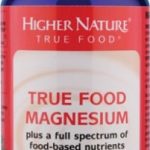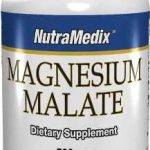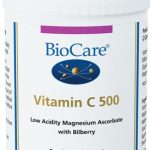Now that we’re in the summer months, it seems fitting to take this opportunity to talk about Vitamin D. Perennially associated with sunshine, Vitamin D’s an umbrella term for a group of fat-soluble secosteroids, two notable examples of which are vitamins D3 (cholecalciferol) and D2 (ergocalciferol), whose most common consumption method is through the skin via the UVB radiation of the Sun’s rays. Also relatively well known is that if young children are deficient in Vitamin D it can lead to rickets, a form of the bone-softening condition osteomalacia.
But what else? What else do we know about Vitamin D? Well, for a lot of people, that’s probably about it, even though, predictably enough, that’s really only the tip of the iceberg. Indeed, recent research has linked deficiency of this particular vitamin to two – intriguingly – very different but widespread ailments: irregular bowel syndrome (IBS) and loss of muscle strength in post-menopausal women.
That ‘leaky gut’ feeling
Our intestines are home to a whole host of Vitamin D receptors, which enable the nutrient’s presence there to protect the intestines’ lining, thereby preventing inflammation and so-called ‘leaky gut’ and, thus, the development of IBS. The condition doesn’t just result in discomfort, diarrhoea, pain and embarrassment, but is often linked to stress, anxiety and depression – research results have shown that its sufferers can often demonstrate undeniably higher levels of anxiety and depression than non-suffers1. Potentially affecting people’s quality of life then, IBS is a big deal – not least because at least one in five people (20%) suffer from the syndrome.
And IBS’s link to Vitamin D deficiency shouldn’t be understated – a recent study for the British Medical Journal discovered that more than four in five (82%) of IBS patients were deficient in it. Unsurprisingly then, supplemented Vitamin D was proved to do them a great deal of good. According to the conclusion of the three-month study, those who’d taken Vitamin D supplements not only saw increased levels of it in their bloodstream, but their final results also suggested a big correlation between their Vitamin D status and improved ‘quality of life’2.
Build up your muscle strength
Only a fool would suggest that the menopause isn’t a complicated and often difficult time in a woman’s life. And, with all the hormonal changes going on in the female body at this point, bone health can become an issue. Many may not be aware, though, that muscle strength – or lack of it – can also be a concern thanks to ‘the change’. Both during and after menopause, oestrogen levels decrease and this can result in sarcopenia – a gradual, ongoing drop in muscle mass.
Is this enormously serious? Well, inside muscles, Vitamin D acts on special receptors, helping to drive up the mass and strength of the muscle as well as becoming involved in protein synthesis, which enables muscle contractions; thus, it plays a critical role in healthy muscle function. All this means that, due to Vitamin D deficiency, post-menopausal women can be at risk of potential frailty (and so reduced mobility) as well as frequent falls. And it can also help drive that particularly unpopular side-effect of menopause, weight gain – because it leads to a lower metabolism.
Inevitably then, help can come from boosting Vitamin D. A recent nine-month study, conducted at Sao Paulo State University in Brazil, found that post-menopausal women who had received Vitamin D3 supplementation enjoyed a 25% increase in muscle strength, while conversely, a similar group of volunteers receiving a placebo instead actually lost muscle mass – and experienced twice as many falls as those taking Vitamin D3.
Optimisation through supplementation
The results of these studies, as well as the fact IBS and muscle softness among post-menopausal women is common, is sadly not surprising (at least in this country) when one considers that four in every 10 (39%) of UK adults experience low vitamin D levels when the sun’s at its weakest in the winter. Indeed, ageing adults (the most likely to spend a good deal of time indoors) are most vulnerable to this nutrient deficiency4.
It’s pretty clear then that most people could probably do with optimising their Vitamin D levels. The trouble is, of course, this is easier said than done, as for half the year in many parts of the world (and, again, certainly in the UK), there isn’t much in the way of sunlight from which to gain it. So the answer? Supplementation. Happily, there are many supplements that contain Vitamin D on the market and, through The Finchley Clinic, you can get hold of the following examples, all of which we obviously recommend:

- Bio-D – liquid-based; 100 ius of Vitamin D per drop
- Bio-Mulsion – also liquid-based; 1,000 ius of Vitamin D per drop
- Vitasorb D – 12.5 ius of Vitamin D per drop (low dosage for children and sensitive individuals)
- Suntrex D3 – vegan-friendly, lichen-derived form of Vitamin D
References:
11 Hyun Sun Cho et al (2011) “Anxiety, Depression and Quality of Life in Patients with Irritable Bowel Syndrome”. Gut Liver. 5 (1): 29–36
12 Tazzyman S. et al (2015) “Vitamin D associates with improved quality of life in participants with irritable bowel syndrome: outcomes from a pilot trial”. BMJ Open Gastro 2: e000052.
13 The North American Menopause Society (NAMS). “Vitamin D3 supplementation helps women build muscle even after menopause: new study demonstrates vitamin effectiveness in reducing degeneration and risk of falls.” September 2015.
14 NICE. “Vitamin D: increasing supplement use in at-risk groups”. November 2014. https://www.nice.org.uk/guidance/ph56 Accessed 30/10/2015




